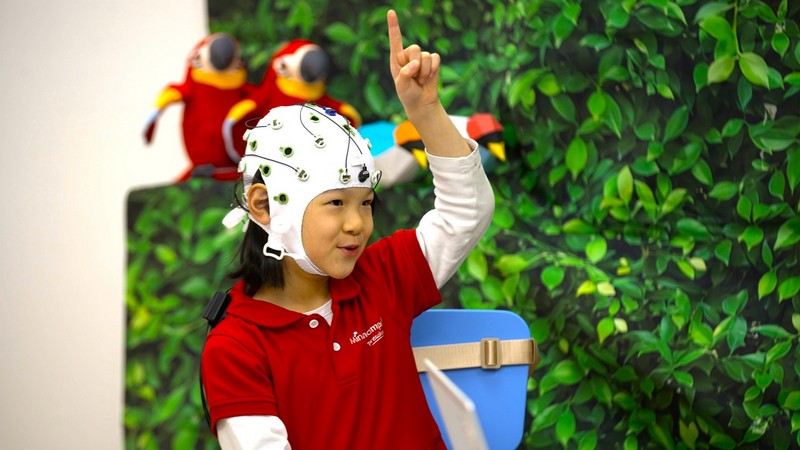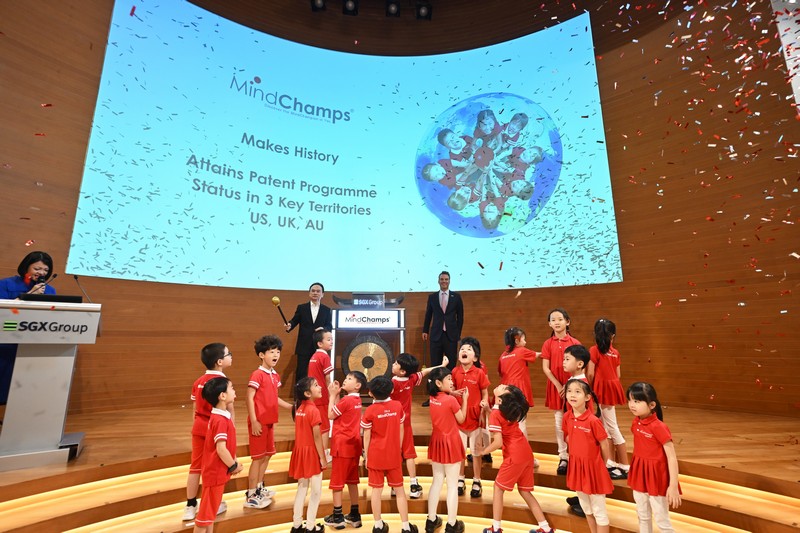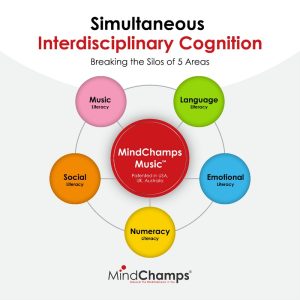MINDCHAMPS PATENTED EDUCATION METHODOLOGY
MINDCHAMPS
MINDCHAMPS PATENTED EDUCATION METHODOLOGY
MINDCHAMPS
 Back to Hall of Fame
Back to Hall of Fame
MindChamps has made history in early education with its patented methodology, a rare achievement in the education sector. This groundbreaking programme, now patented in the US, UK, and Australia, focuses on enhancing "interdisciplinary cognition", which is the brain’s capacity to connect skills across disciplines, building a strong foundation for learning.
By integrating five core literacies— Numeracy, Language, Social, Emotional, and Music—MindChamps’ breakthrough methodology acts as both a bridge and catalyst for cognitive growth. Unlike traditional teaching methods, where subjects are taught in silos, this innovative approach combines them to promote a unified and deeper understanding in young learners.
Empirical studies have shown that this programme significantly improves language (ToPEL) and numeracy (TEMA) scores, while boosting musical literacy by 1.5 standard deviations above peers. These impressive outcomes have captured the attention of the University of South Australia, which is now conducting EEG-based research to investigate the programme’s effects on early brain development. The university anticipates that these findings will not only enhance early learning but also deepen the neuroscience community’s understanding of cognitive development in young children.



Highlights
- MindChamps is the first in early education to secure patent status for its MindChamps Music™ programme across the US, UK, and Australia — a rare feat in education.
- MindChamps Music™ fosters “interdisciplinary cognition” by uniting Numeracy, Language, Social, Emotional, and Music literacies, creating a holistic learning experience.
- Studies show MindChamps Music™ boosts language and numeracy scores while elevating musical literacy by 1.5 standard deviations above peers.
- The University of South Australia is conducting EEG research to explore the programme’s effects, with findings expected to enrich the neuroscience community’s understanding of early childhood brain development.
View Website
 Back to Hall of Fame
Back to Hall of Fame
MindChamps has made history in early education with its patented methodology, a rare achievement in the education sector. This groundbreaking programme, now patented in the US, UK, and Australia, focuses on enhancing "interdisciplinary cognition", which is the brain’s capacity to connect skills across disciplines, building a strong foundation for learning.
By integrating five core literacies— Numeracy, Language, Social, Emotional, and Music—MindChamps’ breakthrough methodology acts as both a bridge and catalyst for cognitive growth. Unlike traditional teaching methods, where subjects are taught in silos, this innovative approach combines them to promote a unified and deeper understanding in young learners.
Empirical studies have shown that this programme significantly improves language (ToPEL) and numeracy (TEMA) scores, while boosting musical literacy by 1.5 standard deviations above peers. These impressive outcomes have captured the attention of the University of South Australia, which is now conducting EEG-based research to investigate the programme’s effects on early brain development. The university anticipates that these findings will not only enhance early learning but also deepen the neuroscience community’s understanding of cognitive development in young children.


Highlights
- MindChamps is the first in early education to secure patent status for its MindChamps Music™ programme across the US, UK, and Australia — a rare feat in education.
- MindChamps Music™ fosters “interdisciplinary cognition” by uniting Numeracy, Language, Social, Emotional, and Music literacies, creating a holistic learning experience.
- Studies show MindChamps Music™ boosts language and numeracy scores while elevating musical literacy by 1.5 standard deviations above peers.
- The University of South Australia is conducting EEG research to explore the programme’s effects, with findings expected to enrich the neuroscience community’s understanding of early childhood brain development.

View Website

